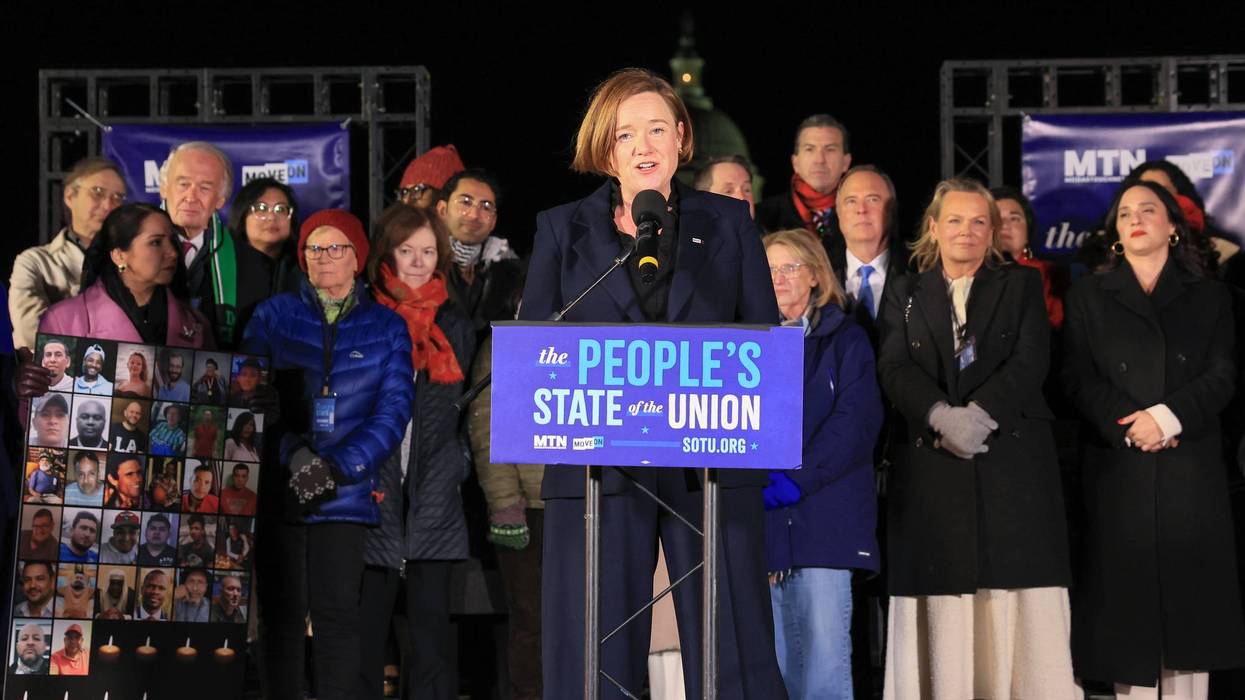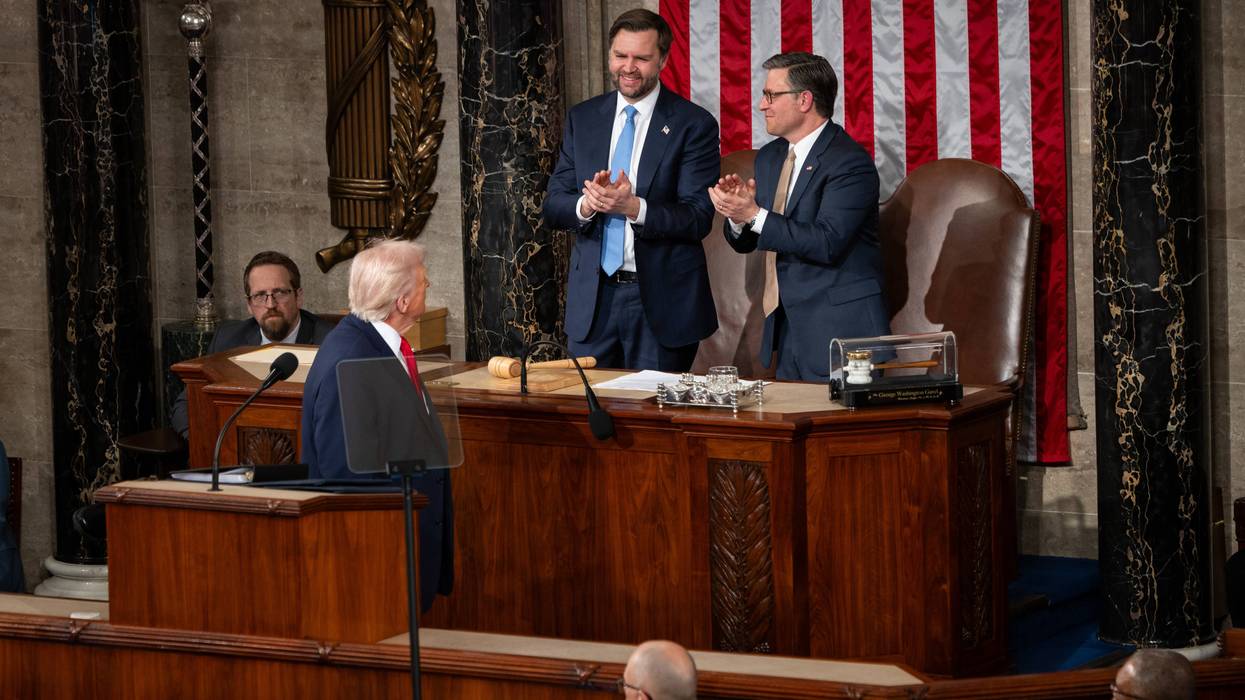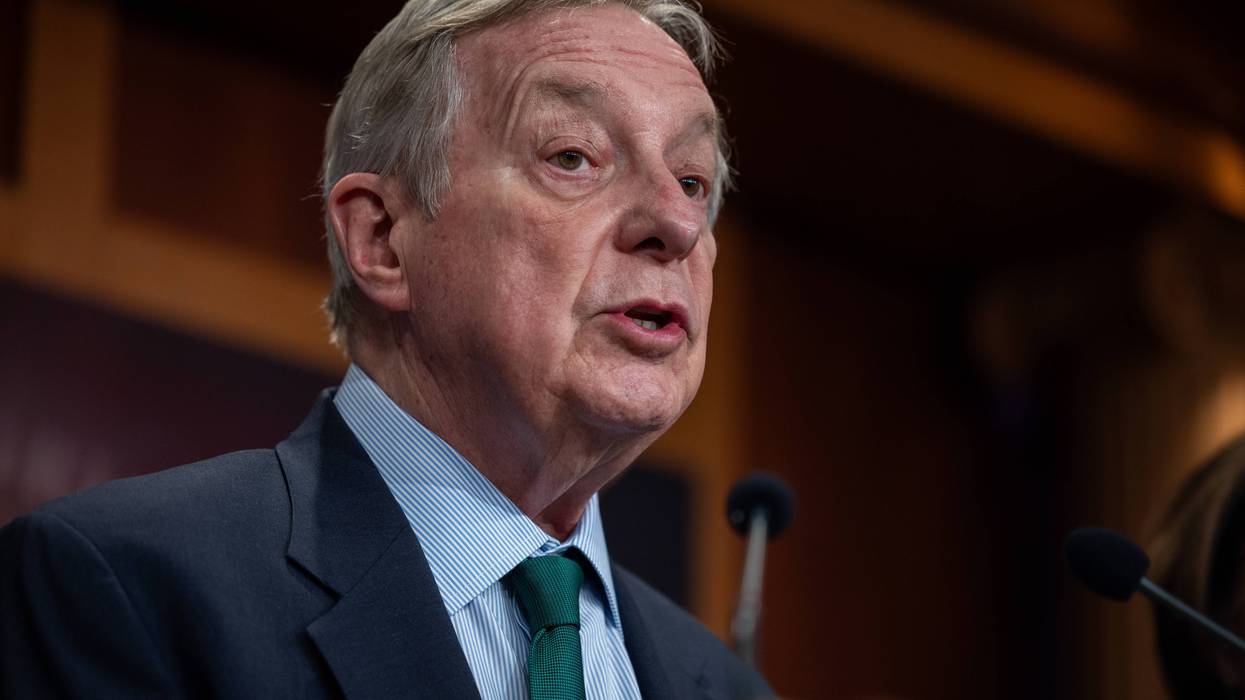March, 04 2009, 01:50pm EDT

ICC: Bashir Warrant Is Warning to Abusive Leaders
Move to Seek Arrest of Sudanese President a Victory for Darfur’s Victims
NEW YORK
The International Criminal Court's (ICC) issuance of an arrest
warrant for President Omar al-Bashir of Sudan signals that even those
at the top may be held to account for mass murder, rape and torture,
Human Rights Watch said today. ICC judges granted the warrant for
Bashir, its first for a sitting head of state, on charges of crimes
against humanity and war crimes for his role in orchestrating Sudan's
abusive counterinsurgency campaign in Darfur.
"With this arrest warrant, the International Criminal Court has made
Omar al-Bashir a wanted man," said Richard Dicker, director of the
International Justice Program at Human Rights Watch. "Not even
presidents are guaranteed a free pass for horrific crimes. By ruling
there is a case for President al-Bashir to answer for the horrors of
Darfur, the warrant breaks through Khartoum's repeated denials of his
responsibility."
The court did not confirm the three counts of genocide that were
requested by the ICC prosecutor. Genocide requires evidence that the
crimes were committed specifically "with the intent to destroy, in
whole or in part," a national, ethnic, racial, or religious group
solely on the basis of its identity.
"Proving genocide charges is always extremely difficult," said
Dicker. "President Bashir is hardly off the hook, as he is sought for
crimes against humanity and war crimes, including widespread rape,
murder, and torture committed as part of a government plan."
Under the ICC Statute, the prosecutor is able to request an
amendment of the warrant to include genocide if he obtains additional
evidence to support the charge.
The ICC prosecutor requested an arrest warrant
for Bashir on July 14, 2008. Following the prosecutor's announcement,
Sudanese government officials made implicit and explicit threats of
retaliation against international peacekeepers and humanitarian
workers. On July 25, a Sudanese presidential advisor, Bona Malwal,
stated in regard to peacekeeping forces that, "We are telling the world
that with the indictment of our President al-Bashir we can't be
responsible for the well-being of foreign forces in Darfur." President
Bashir has also threatened to expel international peacekeeping forces
if a warrant is issued.
The Security Council, its individual members, the UN Secretariat,
the European Union, and the African Union have a critical role in
promptly responding to any government-supported retaliation in Darfur
following news of the warrant.
"The Sudanese government is obliged to maintain security in the
country and the Security Council should act decisively to hold them to
it," said Dicker. "Khartoum should not be allowed to use the arrest
warrant as a pretext for stepping up its obstructionist policies that
have hobbled peacekeeping and humanitarian efforts in Darfur."
The government of Sudan is required by a Security Council resolution
to facilitate the deployment of the African Union/UN Mission in Darfur
(UNAMID) and to cooperate with the ICC. Under international law, Sudan
remains obligated to protect its own civilians and to provide full,
safe, and unhindered access by relief personnel to those in need in
Darfur. The arrest warrant does not change these obligations, nor does
it have any impact on Khartoum's obligations to carry out the 2005
Comprehensive Peace Agreement with the government of Southern Sudan.
"The Security Council and concerned governments should impose
targeted sanctions against Sudanese officials responsible for any
retaliatory violence, and consider other measures such as further
banking restrictions or a widening of the arms embargo," said Dicker.
The ICC is an independent judicial institution. Sudan, though not a
party to the Rome Statute creating the court, is subject to ICC
jurisdiction through Security Council resolution. Having an official
position as head of state does not provide immunity from criminal
responsibility before the ICC.
Apart from the warrant against President Bashir, the ICC has issued
two other warrants in relation to Darfur. On April 27, 2007, the court
issued arrest warrants for State Minister of Humanitarian Affairs Ahmed
Haroun and a "Janjaweed" militia leader, Ali Kosheib. The prosecutor
has also requested arrest warrants for three rebel leaders in
connection with attacks on international peacekeepers at Haskanita in
October 2007. That request is currently under consideration by the
court.
Sudan has so far refused to cooperate with the ICC. All the arrest
warrants remain outstanding. Haroun continues in his official position
as state minister of humanitarian affairs. On November 24, the Sudanese
government arrested and tortured three human rights defenders in
Khartoum for allegedly giving information to the ICC.
"Khartoum is required to cooperate with the court," said Dicker.
"Because the ICC has no police force of its own, it needs strong
support from governments to ensure that all those charged with crimes
are arrested."
Background
In a March 31, 2005 resolution, the Security Council referred
the situation in Darfur to the ICC prosecutor for investigation and
prosecution. The decision was based on the recommendation of an
international commission of inquiry, which found that violations of
international humanitarian law and human rights law were continuing in
Darfur and that the Sudanese justice system was unwilling and unable to
address the crimes. Darfur is the first situation referred by the
Security Council to the ICC.
Human Rights Watch is one of the world's leading independent organizations dedicated to defending and protecting human rights. By focusing international attention where human rights are violated, we give voice to the oppressed and hold oppressors accountable for their crimes. Our rigorous, objective investigations and strategic, targeted advocacy build intense pressure for action and raise the cost of human rights abuse. For 30 years, Human Rights Watch has worked tenaciously to lay the legal and moral groundwork for deep-rooted change and has fought to bring greater justice and security to people around the world.
LATEST NEWS
Watched by Millions, 'People's State of the Union' Counters Unhinged Trump
"We live in a country where we have one reality for everyday people and another for the rich and the well-connected and the well-protected," said Rep. Summer Lee.
Feb 25, 2026
As President Donald Trump prepared to deliver his State of the Union address on Tuesday to applause from sycophantic Republicans, dozens of Democratic lawmakers, progressive advocates, and people impacted by White House policies gathered on the National Mall to present an alternative assessment of the country's trajectory.
"We live in a country where we have one reality for everyday people and another for the rich and the well-connected and the well-protected," said Rep. Summer Lee (D-Pa.), preempting Trump's claim of a "golden age of America" despite rising costs, deepening inequality, and staggering corruption.
While many Democratic lawmakers opted to attend Trump's speech, saying they did not want the president to deliver his remarks to a House of Representatives full of Republicans, Sen. Chris Murphy (D-Conn.) told the crowd gathered blocks from the US Capitol that "these are not normal times, and Democrats have to stop behaving normally."
Watch the full counter-rally, which organizers said millions watched online:
Among those who joined Democratic lawmakers at the People's State of the Union were Epstein survivors and people harmed by the Trump administration's lawless assault on immigrants, assault on the social safety net, and other policies.
Rep. Greg Casar, chair of the Congressional Progressive Caucus, said during his remarks at Tuesday's rally that "I’m not in the Capitol building tonight because I have a pretty good idea of what's going to happen."
"For an hour or two or three or four, a man who's made $4 billion off of being president is going to lecture you, the American people, about how good you have it," said Casar. "A man who is building himself a golden ballroom is going to tell you that if you're struggling to get by, that's your fault, because he's killing it."
"Everyone but Donald Trump's rich friends knows that it's a disaster," Casar added.
Keep ReadingShow Less
'Disgusting': Republicans Applaud as Trump Brags About Taking Food Aid From Millions
"His Big Ugly Bill ripped food away from hungry moms, kids, and seniors to fund tax cuts for the wealthiest Americans," said one House Democrat.
Feb 25, 2026
US President Donald Trump received a standing ovation from Republican lawmakers and administration officials Tuesday night when he bragged during his State of the Union address about taking nutrition assistance from millions, which he euphemistically characterized as lifting people off food stamps.
"In one year, we have lifted 2.4 million Americans—a record—off of food stamps," Trump said during his nearly two-hour speech.
The Republican reconciliation package that Trump signed into law last summer included $187 billion in cuts to the Supplemental Nutrition Assistance Program (SNAP) over a 10-year period, the largest cuts to the program in US history.
Trump: "In one year, we have lifted 2.4 million Americans -- a record -- off of food stamps" (In other words, Republicans cut food stamps) pic.twitter.com/19EoNEUmPF
— Aaron Rupar (@atrupar) February 25, 2026
The Republican law includes reductions in federal nutrition funding for states—which administer SNAP—as well as expanded work requirements, which the nonpartisan Congressional Budget Office estimated would strip nutrition benefits from "roughly 2.4 million people in an average month" over the next decade.
As the Center on Budget and Policy Priorities noted in a recent analysis, changes enacted by the Trump-GOP law mean that "for the first time in the 50-year history of the modern SNAP program, the federal government will no longer ensure that the lowest-income people, including children, older adults, veterans, and people with disabilities, in every state have access to the food assistance they need because states that refuse to pay the cost share could see the program end."
Shortly after Trump signed the Republican megabill into law, his administration canceled an annual US Department of Agriculture survey aimed at measuring food insecurity, undercutting efforts to track the impact of the unprecedented SNAP cuts. The USDA's final reports estimated that nearly 48 million people in the US faced food insecurity in 2024—including nearly one in five households with children.
"Trump says he 'lifted' millions off food stamps," Rep. Brittany Pettersen (D-Colo.) wrote in response to the president's State of the Union remarks. "But what he really means is his Big Ugly Bill ripped food away from hungry moms, kids, and seniors to fund tax cuts for the wealthiest Americans. The lies are blatant and disgusting."
Rep. Sarah McBride (D-Del.) denounced her Republican colleagues for their celebratory response to Trump's boast.
"They're applauding ripping food out of people’s mouths to fund their tax cuts for billionaires," McBride wrote on social media.
USDA data released ahead of Trump's speech shows that around 696,000 fewer people received SNAP benefits in November 2025 compared to the previous month.
Katie Bergh, a senior policy analyst on the food assistance team at the Center on Budget and Policy Priorities, noted that "people haven’t been dropping off SNAP because they no longer need help."
"Economic conditions haven’t improved and groceries haven’t gotten more affordable," Bergh added. "They're losing basic food assistance because of policy choices. Allowing this trend to continue is also a policy choice."
Keep ReadingShow Less
Congress Urged to Require Warrants in Reauthorization of Key Spy Power
"FISA 702 has been abused in shocking ways," said one campaigner. "If Congress genuinely cares about surveillance abuse, weaponization, and 'lawfare,' it needs to rein in this warrantless surveillance power."
Feb 24, 2026
Privacy advocates are backing a bipartisan bill introduced in the US Senate this week that's intended to protect Americans from warrantless government surveillance.
Sens. Dick Durbin (D-Ill.) and Mike Lee (R-Utah) unveiled the Security and Freedom Enhancement (SAFE) Act on Monday, in the wake of Politico reporting that President Donald Trump's White House "is quietly pushing for a key spy authority to be extended as is into 2027, according to five people granted anonymity to discuss the private talks."
There have long been arguments on Capitol Hill and beyond over Section 702 of the Foreign Intelligence Surveillance Act (FISA), which empowers the federal government to surveil electronic communications without a warrant. The law only allows for targeting foreigners outside the United States to acquire foreign intelligence information, but Americans' data is also collected.
Despite such arguments, Congress reauthorized Section 702 nearly two years ago, under then-President Joe Biden. That decision is set to expire on April 20, setting up a new battle over the spying power—hence the bill's introduction this week.
Under Durbin and Lee's proposal, the authority would be extended another two years, but government agencies must obtain a FISA Title I order or a warrant before accessing Americans' communications. As the pair noted in a statement, it also "closes the 'data broker loophole' that intelligence and law enforcement agencies use to buy their way around the Fourth Amendment" to the US Constitution, which bars unreasonable searches and seizures and details requirements for issuing warrants.
"Section 702 is a valuable tool to help keep our nation safe," said Durbin. "However, it's being used to conduct thousands of warrantless searches of Americans' private communications. That's unacceptable. Our bipartisan SAFE Act is a commonsense solution to continue protecting our country from foreign threats—while safeguarding Americans' civil liberties and privacy."
In a Tuesday statement welcoming the legislation, Demand Progress senior policy adviser Hajar Hammado highlighted that "right now, the government can freely troll through your private emails and texts swept up in 702 collections and this power has been abused to spy on everyday Americans, journalists, and even members of Congress."
"No government, whether it's run by Donald Trump and Stephen Miller or Joe Biden, should be able to do this," argued Hammado. According to Politico, Miller, the White House deputy chief of staff for policy and homeland security adviser, "is a leading advocate" for extending Section 702.
Hammado stressed that "the SAFE Act is a bipartisan solution to this problem, and all members of Congress should not support reauthorization without these critical reforms. We thank Sens. Lee and Durbin for their leadership on this bill and for modeling how Republicans and Democrats can come together to stop oppressive government overreach."
Jake Laperruque, deputy director of the Center for Democracy & Technology's Security & Surveillance project, also endorsed the bill in a Tuesday statement.
"FISA 702 has been abused in shocking ways," said Laperruque. "The FBI has misused it to snoop on protesters, lawmakers, journalists, judges, and campaign donors. If Congress genuinely cares about surveillance abuse, weaponization, and 'lawfare,' it needs to rein in this warrantless surveillance power."
"The SAFE Act includes bold FISA reforms, creates strong guardrails against surveillance misconduct, and has been meticulously crafted to protect national security," he continued. "With less than 10 weeks until FISA 702 expires, Congress should take up reform legislation quickly. Kicking the can on FISA would be a dereliction of duty."
A CDT-led coalition of privacy advocates across the political spectrum recently identified these as the four key issues to address in FISA reform. The SAFE Act effectively takes on all of them. With just SEVEN weeks until FISA 702 expires, we hope Congress will quickly take up this vital bill.
[image or embed]
— Jake Laperruque (@jakelaperruque.bsky.social) February 24, 2026 at 12:22 PM
Republicans have a narrow majority in both chambers of Congress but, due to Senate rules, generally need some Democratic support to send legislation to Trump's desk. However, the GOP could also run into trouble on this issue in the House of Representatives. As Politico pointed out last week:
Ultimately, there's no easy path to pass a clean extension in the House. One of the people with knowledge of the discussions said GOP leaders are "going to have a problem" trying to unite Republicans behind a special "rule" allowing for an up-or-down floor vote on a clean extension, which are typically party-line affairs.
But Republicans also believe that with Trump in office, a number of Democrats who previously supported leaving Section 702 intact will now support putting more fetters on intelligence agencies—making the alternative route, a two-thirds-majority bipartisan vote under suspension of the rules, all but impossible.
The latest Section 702 fight comes as Trump is under fire for his rising authoritarianism, from invasions of US cities targeting immigrants to his sweeping assault on First Amendment rights, including reported federal watch lists to track and categorize US citizens—especially activists and protesters—as "domestic terrorists."
Keep ReadingShow Less
Most Popular


